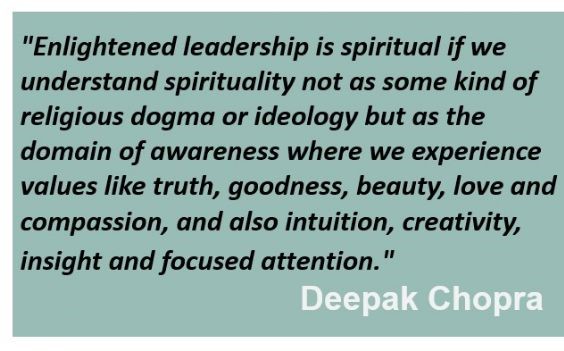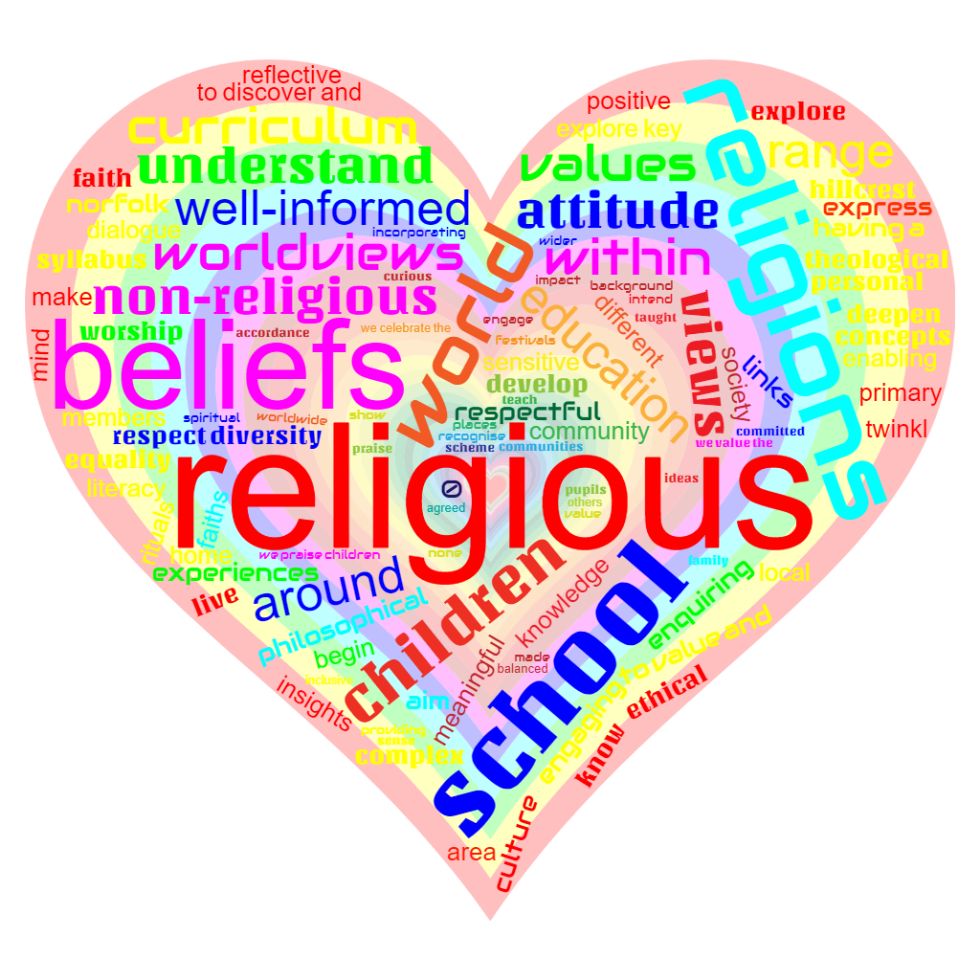Religious Education


Hillcrest's 5 Principles of Religious Education
At Hillcrest, each subject team has created 5 key principles, outlining what makes up quality teaching in each subject:
|
|
|
|
|
|
|
|
|
Click on the INTENT, IMPLEMENTATION and IMPACT bars below to discover why and how we teach Religious Education.

INTENT Statement for Religious Education
At Hillcrest Primary School, we are committed to providing an inclusive and engaging Religious Education curriculum that is taught in accordance with the Norfolk Agreed Syllabus (2019), incorporating the Kapow scheme. We intend for children to deepen their knowledge about world religions and to develop their religious literacy.
Through our Religious Education curriculum we aim for children to:
-
Know about and understand a range of religious and non-religious worldviews, their impact on society, culture and the wider world, enabling pupils to express ideas and insights,
-
Make sense of religious and worldwide views around them and begin to understand the complex world we live in,
-
Engage in meaningful and well-informed dialogue with those of other faiths and none,
-
Show a well-informed, balanced, sensitive, respectful attitude to religions and world views,
-
Explore their own spiritual, philosophical and ethical beliefs and values,
-
Develop an enquiring mind – being curious about the world around them,
-
Recognise and value others personal and family beliefs.
We aim for children to discover and explore key theological concepts within the world religions.
We value the religious background of all members of our school community and the links that are made between home, school and faith communities. We teach children to value and respect diversity and equality.
We celebrate the different beliefs, festivals, rituals and places of worship of religions within our school community and local area.
We praise children for having a sensitive, respectful and positive attitude to a range of religious and non-religious beliefs and worldviews. We praise children who are reflective of their own beliefs, values and experiences.
IMPLEMENTATION Statement for Religious Education
Hillcrest Primary School’s RE curriculum is designed to ensure religious literacy lies at the heart. Through enquiry-led and discussion-based lessons, our RE curriculum provides the opportunity for the children to explore theology (thinking through believing), philosophy (thinking through thinking) and the human/social sciences (thinking through living).
Following the guidance from the Norfolk Syllabus, the children are taught about the main world religions (Christianity, Bhuddism, Hinduism, Islam, Sikhism, and Judaism, along with world views including Humanism). Within EYFS, the children develop their understanding with reference to the ELG’s with a focus on understanding the world around them (the world/people and communities).
To ensure consistency across the school, Kapow Religious Education teaching resources are used as a base to plan lessons.
The lessons are planned to ensure the inclusivity of all children within the class, covering a range of abilities. A range of teaching strategies, including the use of art, music, thinking skills, artefacts and stories, are used to encourage children to discuss their ideas and extend their understanding of difficult concepts and challenging questions.
Children have the opportunity to encounter local faith communities through visitors in school and discussions with children of other religions within the school environment.
Progress is monitored through the use of Assessment for learning activities, building up learning throughout the 6-week unit of learning. Children will participate in self and peer-assessment, along with teacher-based assessments. Teachers will monitor and record progress, using this to influence future planning.
IMPACT Statement for Religious Education
RE teaching at Hillcrest Primary School provides the children with religious literacy, enabling every child to hold balanced and well-informed conversations about religion, belief and worldviews, using a wide religious vocabulary. Children will be able to articulate similarities and differences between religions and beliefs in a sensitive and respectful way. Children will leave our school as good, well-rounded citizens who are well-prepared for the opportunities, responsibilities and experiences of later life.
Explore the blue banners below to find out more about what specific themes we teach in Religious Education and how these themes are revisited, recalled and expanded upon as the children journey through the school. Please see attachments below to see Intent, Implement and Impact from Kapow.

Year Group Overviews for Religious Education
Please see attachments at the bottom of this page.





